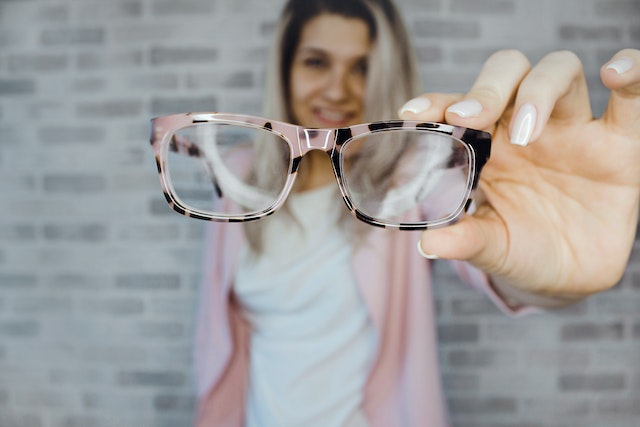We all know that eyeglasses can help improve our vision and make our lives easier, but how do you know if you need them? Is it really time to go out and get a pair? There are some tell-tale signs that can point to the need for eyeglasses, so it’s important to keep an eye out for them. Whether you’re having trouble reading the menu at a restaurant or you’re having difficulty seeing far away objects, the signs may be there. If you’re experiencing any of the following signs, it may be time to get your eyes checked and invest in a pair of glasses. Let’s take a look at what to watch out for.
Difficulty Focusing on Objects at a Distance
A common sign that you may need eyeglasses is having difficulty focusing on objects at a distance. If you are having trouble seeing objects or recognizing people’s faces when they’re further away from you, then you may need a pair of glasses with a prescription that helps specifically with farsight. Those who experience issues with long-distance vision may find it difficult to see close-up objects as well.
Difficulty Reading Close Up
Another sign that you may need eyeglasses is difficulty reading text that is close to your face. If you are having trouble reading close-up, then you may require a prescription that targets this issue specifically. Many people with poor nearsighted vision will have difficulty reading menus at restaurants or anything with smaller print. They may show signs of this by extending their arm to hold text further away from their face and not even realize it.
Experiencing Unusual Headaches
Indications that you may need eyeglasses also include experiencing unusual headaches. If you have this issue, then it’s important to get your eyes checked. You may have one of the following conditions:
- Convergence Insufficiency – Your eyes do not move in the same direction when focusing on near and far objects.
- Astigmatism – You have an abnormal curvature of the cornea.
- Near-sightedness
- Farsightedness
- Presbyopia
While these conditions are more common than you think, you may need a pair of glasses with a prescription to help with the problem.
Seeing Halos Around Lights
When looking at lights, do you see glowing halos around them? If you do see halos around lights, then you may have a condition called photophobia. This occurs when your eyes are too sensitive to light, making lights appear brighter, thus impairing your vision.
Double Vision or Blurry Vision
Another sign that you may need eyeglasses is having blurry or double vision. Blurry vision or double vision could be the result of a condition called diplopia. This occurs when your eyes do not move together properly. This makes it harder for your eyes to agree on a single focal point, creating a blur or double-vision effect.
Squinting to See Objects
Someone who needs eyeglasses may show signs of this by squinting to see objects. If you have this issue, then you may have a condition called hyperopia. This is the scientific term for farsightedness. This condition creates difficulty focusing on close-up objects causing those it affects to squint in an effort to see better.
Your Eyes Become Tired Easily
If you begin to notice that your eyes are becoming tired easily, then you may have a condition called photopsia. This condition refers to sensitivity in the eye. When the eyes are oversensitive, bright light or overuse can create strain.
Frequently Losing Your Place When Reading
Lastly, it may be time to see an eye doctor if you notice you are frequently losing your place when reading. This symptom is often found in those with a condition called macular degeneration. This occurs when the macular, which is the part of the retina that allows you to see fine details such as words on a page, begins showing signs of damage often in old age.
Final Thoughts
Out of the five senses, vision is often the most prized of all. Good vision is invaluable to many tasks humans take on throughout their days, and adds significantly to one’s quality of life. As mentioned above, there are many ways of telling it may be time for eyeglasses. The best way, of course, is to schedule annual checkups with an optometrist in your area. They can help diagnose conditions of the eye and recommend proper treatment.


